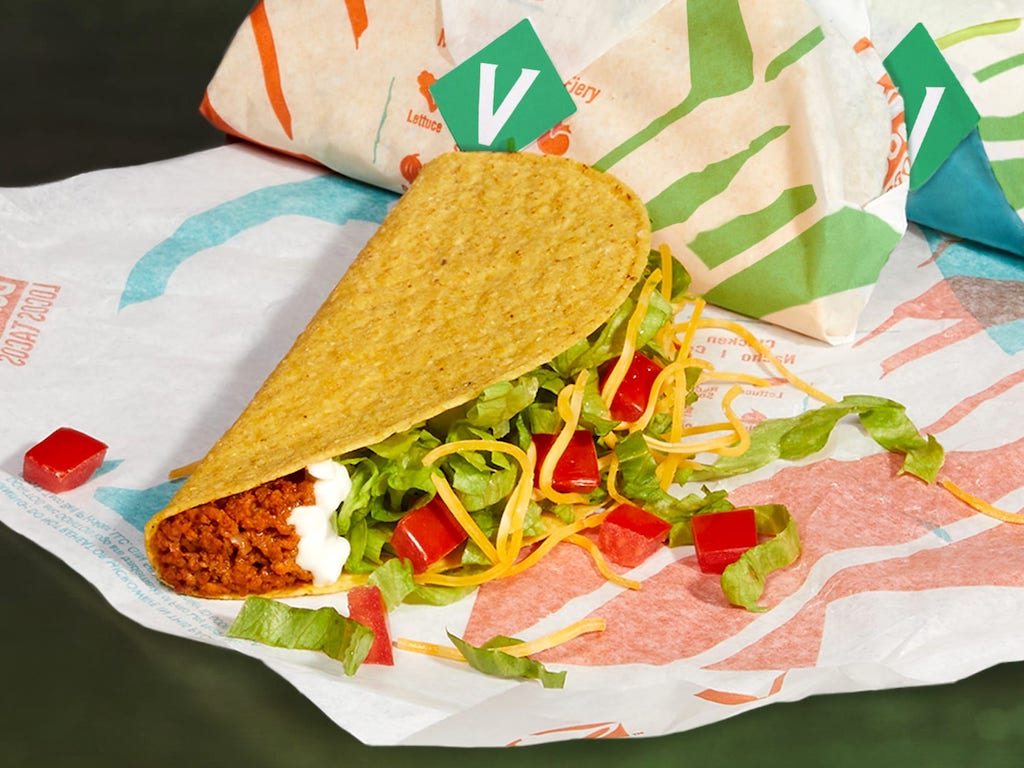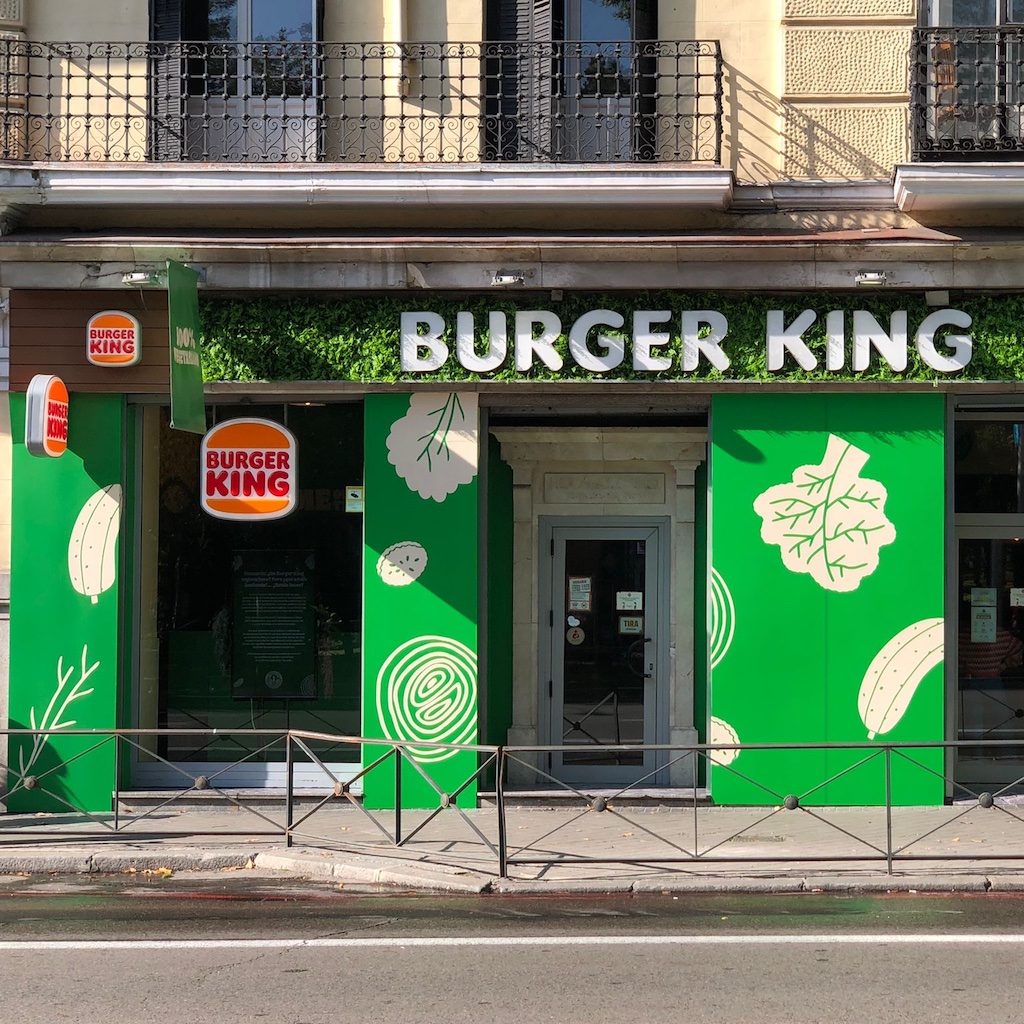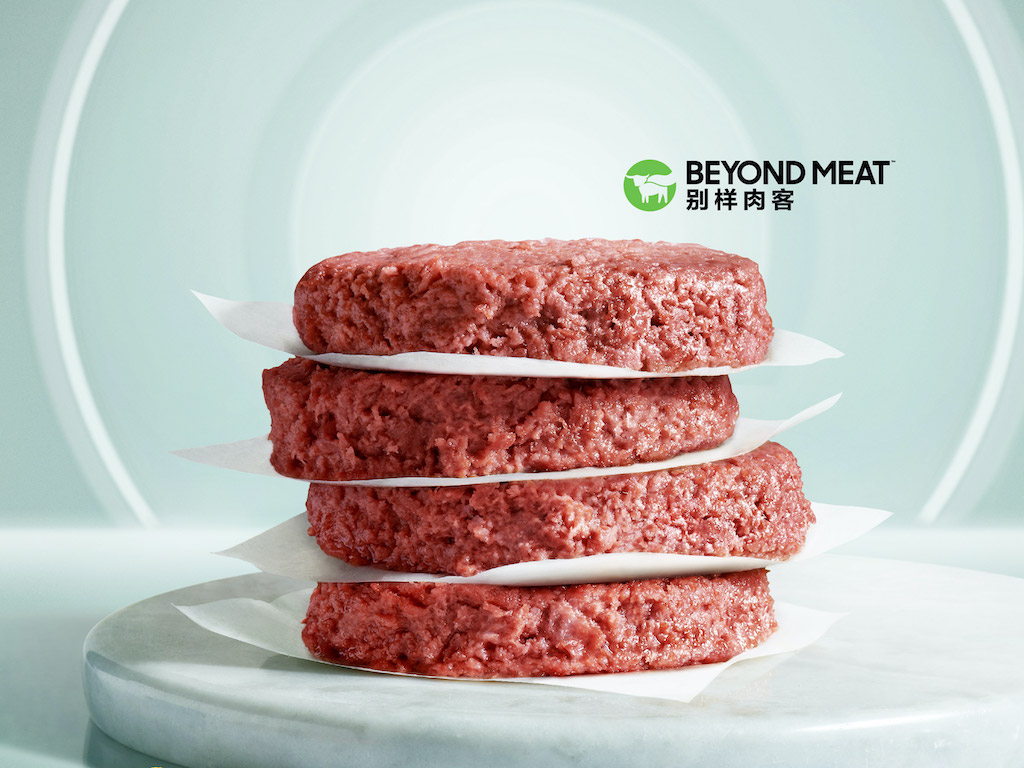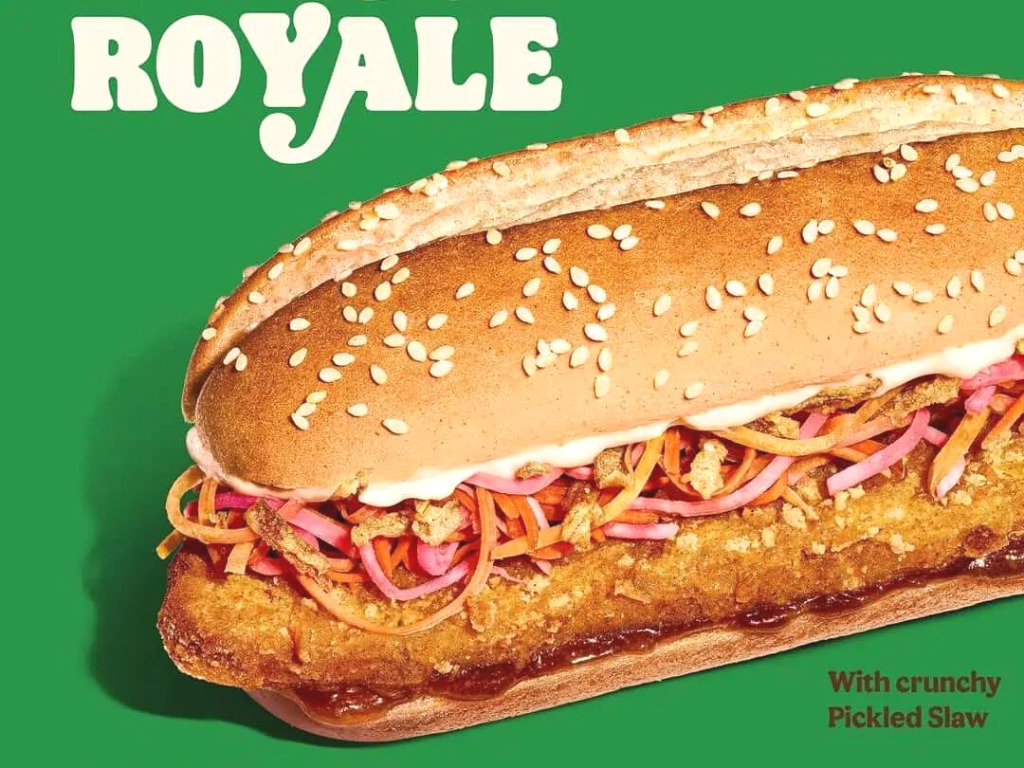8 Mins Read
“Normal, or with meat?” That’s the question customers at an Austrian Burger King will hear from now on as the chain brings plant-based meat to the forefront as the “normal” version.
The majority of Burger King Austria’s menu will default to vegan meat unless customers specify otherwise, the chain announced last week.
“At Burger King, we are making meatless indulgence a permanent fixture on our menu, because meat no longer comes naturally to everyone. With the provocative question “Normal or meat?”, we want to show that we take our customers and their needs seriously. Because from now on, we also serve almost our entire range on a plant-based basis”, says Jan-Christoph Küster, Marketing Director of the TQSR Group, the Austrian master franchisee of Burger King.
Burger King has been leading a shift away from meat, following the launch of the Impossible Whopper in 2019 with much success. In Europe, it’s trialed several meat-free pop-ups. Recent data shared by the company found one in three Burger King burgers sold in Belgium is meat-free.
Climate change is changing appetites. The global food system is in a crisis: from our health to our planet, experts continue to call for change. Burger King isn’t alone in its pivot; fast food is emerging as a bona fide solution as chains continue to add vegan meat to menus.
Fast food, vegan food
Demand for plant-based options has never been higher. Sales of vegan food in the U.S. alone surpassed $5 billion in 2019, according to the Plant Based Foods Association, the industry’s lobby group. Vegan meat sales make up more than $1 billion of the segment. According to the Good Food Institute, the category increased by more than $430 million in sales from 2019 to 2020, growing more than 72 percent in the last two years.
Fast-food giants have struggled in recent years to satisfy changing consumer dietary preferences. McDonald’s has tried and failed with a number of healthy-leaning menu items. Despite consumer efforts to reduce saturated fat and sodium intake, they continue to expect reliable indulgences from their fast-food favorites. That’s been a difficult crossroads for the major burger chains.
Part of the challenge is that chains that start out with healthier slants, like Chipotle and Panera, have succeeded in maintaining mostly healthy menus. But for the greasy burger drive-thrus like McDonald’s and Burger King, their customers haven’t been so quick to warm up to salads or breakfast burritos. But Beyond Meat, and rival Impossible Foods, have allowed fast-food customers to have their burgers and eat them too—quite literally.

Omnivores and the growing segment of consumers identifying as flexitarian can enjoy the meaty taste and texture of beef but with protein made from plants that are both healthier and lower in emissions. Consumers have been into it; already on the rise in recent years, sales of vegan burgers skyrocketed during the early days of Covid.
Impossible Whoppers and McPlants have certainly captured some of the fence-sitters, but the recent KFC partnership with Beyond Meat is a prime example of what the future of food—fast or not—looks like.
The chain, known for a sparse menu containing little more than buckets of fried chicken, first trialed Beyond Meat’s vegan chicken in 2019 to critical acclaim. Its test pop-up at an Atlanta location sold more vegan chicken than a normal week’s worth of popcorn chicken in just a few hours. Customers lined up around the block for a taste.
Atlanta was a prime choice. It has seen interest in vegan options boom in recent years thanks in large part to Pinky Cole’s viral burger pop-up, Slutty Vegan. She put Beyond’s rival Impossible Foods’ burger on the map in the meat-heavy South. Her dirty vegan burgers earned praise from celebrities including Snoop Dogg and Tyler Perry. Atlanta gave KFC’s foray into vegan chicken a kickstart that led to additional trials across the country, new permanent vegan menu items in the UK, and in January, a Veganuary launch in the U.S.
The pizza chains are in, too with dairy-free cheese that’s often a harder sell than vegan meat. Pizza Hut has sporadically trialed vegan items—it’s long had dairy-free cheese options in Australia, slowly adding vegan meat to its menus with much success. Last November it announced a U.S. partnership with Beyond Meat to bring vegan sausage topping to pizzas. Domino’s added vegan pepperoni to the UK for Veganuary. But in the U.S., vegan cheese is hard to find from the big chains, even when they’ve put vegan meat on the menu.

Taco Bell, though, may just be the tortoise in this race. The Yum Brands chain’s bean burritos have long made it a haven for vegans and vegetarians. It was the first major chain to build out a vegan-friendly menu and a dedicated web page to help customers navigate it. Yum’s most recent Sustainability Report shows vegetarian options at Taco Bell make up 12 percent of the chain’s sales.
“The Bell” upped its vegan game when it embraced plant-based meat in 2019. It became the first major chain to offer pulled oat meat across Europe.
The already plant-heavy menu at Taco Bell naturally lends itself to the flexitarian customer—swapping in Beyond Beef for cow beef may come as easy as choosing your hot sauce heat level. It may work so flawlessly, that the heavily-seasoned beef items may be fully plant-based before the end of the decade, with consumers hardly batting an eye. It’s logistically an easier transition when dealing with crumbled beef instead of whole burger patties. And if the plant-based trend continues—which seems inevitable—Taco Bell’s veggie-embracing past makes it the most logical front-runner to go permanently Beyond.
Its chief rival, Chipotle, is upping its vegan options, too. While it’s always had vegan beans, it added tofu sofritos several years ago and a plant-based chorizo last month. It also just invested in mushroom meat company Meati’s $150 million Series C fundraise.
Beyond the future
Although it’s best known for its burgers, Beyond Meat’s aim has always been to supplant traditional meat from menus across all categories. Beyond has already improved on the original Beyond Burger, which launched in 2016, reducing sodium, and improving flavor and texture, among other attributes. The company’s range also includes sausage, crumbles, and chicken strips. And it is working on other formulations including the harder-to-mimic whole cuts of meat like bacon—what Brown calls his holy grail. It recently partnered with Pepsi on a vegan jerky launch.
Impossible Foods has extended its reach, too. It recently landed at Starbucks and is playing catch-up to Beyond in international markets. But they’re not the only players in the game. Canada’s Field Roast landed a national deal with the leading hot dog chain, Wienerschnitzel.

But not all partnerships succeed. Despite hype and support from celebrities including Snoop Dogg, Dunkin’ pulled its Beyond Sausage menu items last year from most locations, citing lagging sales. It had been available at 9,000 locations nationwide.
“We maintain a strong relationship with Beyond Meat and will continue to work together to explore innovative plant-based options to meet consumer demand for plant-based menu items,” the chain told Eat This, Not That! “The Beyond Sausage Breakfast Sandwich continues to be available at several hundred Dunkin’ restaurants throughout the country including in California, Arizona, New Mexico, Colorado, Missouri, Nebraska, Hawaii, Utah, Kansas, and Wyoming.”
The underperforming products don’t surprise experts. According to the Centers for Disease Control and Prevention, America has a fast-food problem. As of 2016, more than 36 percent of adults in the U.S. consumed fast food on any given day. Despite the millennial and Gen Z propensity toward sustainability and vegan food, they are still driving the market: nearly 45 percent regularly consume fast food compared with 37 percent of people over age 40, and 24 percent over age 60.
Fast food has been linked to a number of diet-related illnesses including heart disease, obesity, and Type 2 diabetes, among others.
It’s also a problem for the planet. Cheap beef often comes from Brazil, where it’s a leading cause of deforestation. In 2019, a coalition of investors urged leading chains including McDonald’s and KFC to take climate action. The group, which manages more than $6.5 trillion in assets, says animal agriculture is a leading cause of emissions and is resource-intensive.

“When it comes to evaluating market risk, rising global temperatures and intensifying competition for water access are increasingly material factors for investors,” said Eugenie Mathieu, from Aviva Investors, one of the signatories.
“This is especially the case in the meat and dairy sector. From field to fork, investors want to understand which food companies are monitoring and minimising the long-term environmental risks in their supply chain. This engagement sends a clear message to the fast food sector that investors expect them to deliver sustainable supply chains.”
With initiatives underway like New York City’s new vegan school lunch policy on Fridays, and California’s recently earmarked $700 million for plant-based school lunches, consumer tastes are going to change over time. Couple that with the continued pressure on brands to increase their sustainability commitments, and a shifting food system doesn’t look that far off.
For Burger King, it signifies a future food system that’s fundamentally better than it was over the last half-century.
“With this [‘normal or meat’] question, we want to stimulate the social debate and show that our plant-based alternatives have a confusing taste,” Burger King’s Küster says. “Meat is one option, but it is not the only one.”



